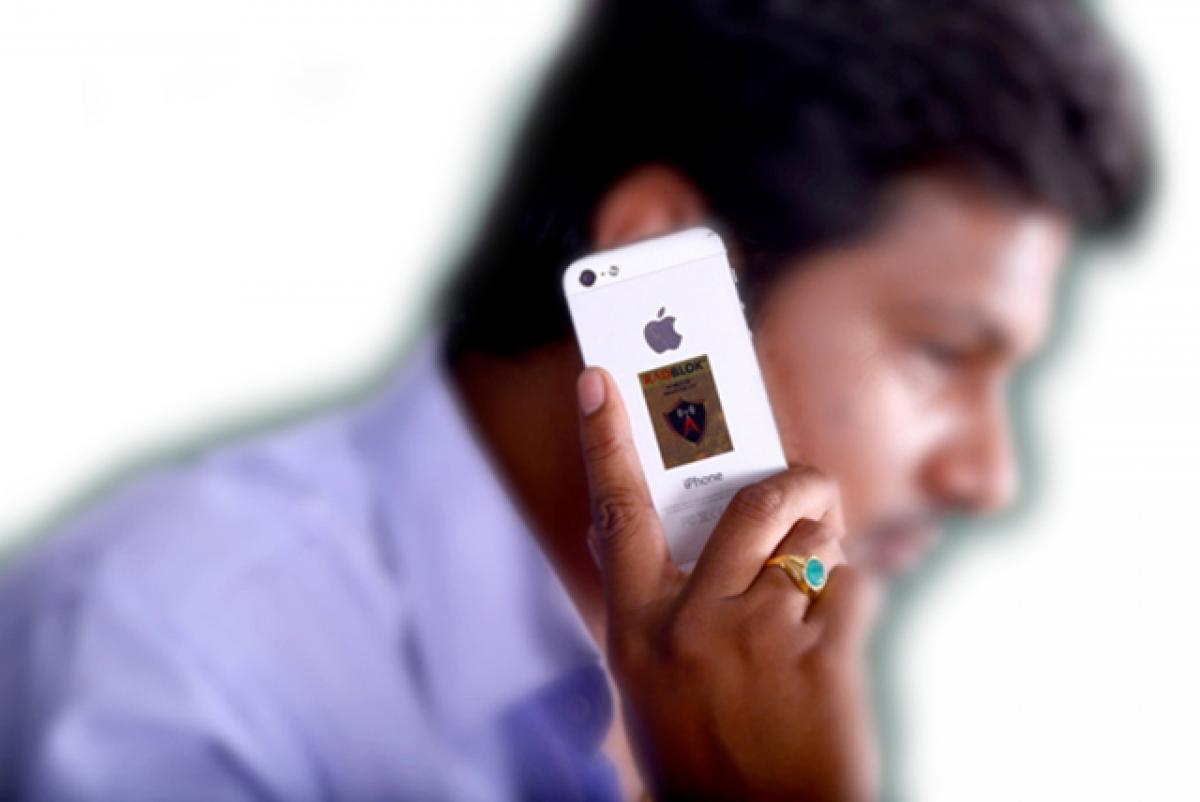A smarter way to chip off radiation

Hyderabad-based Maxwell EMR Research Centre Pvt. Ltd is riding high on this front with its anti-radiation chip called RadBlok.
Hyderabad-based Maxwell EMR Research Centre Pvt. Ltd is riding high on this front with its anti-radiation chip called RadBlok. It shields radiation generated by any sort of communication devices like mobile phones, tablets, Bluetooth and Wi-Fi. More over it deals with high frequencies, like 4G.
.jpg)
All of us are aware of the harmful effects of radiation which is emitted from our mobile phones. Electro-magnetic radiation can affect sleep patterns and can cause nausea, tiredness, giddiness, hypertension and in extreme cases lead to infertility, heart malfunction (missing of beats), brain waves disorder.
Now after selfie sticks, chips that claim to repel radiation could well be the next accessory toy in town. This is despite the government's assurances about emissions from telecom towers being safe. City-based Maxwell EMR Research Centre Pvt. Ltd is riding high on this front with its anti-radiation chip called RadBlok.
It shields radiation generated by any sort of communication devices like mobile phones, tablets, Bluetooth and Wi-Fi. More over it deals with high frequencies, like 4G. “There are many products in the market which promise to curb radiation levels but RadBlok uses nano gold coated polymer shield, the most electrically conductive of all metals that allow signal waves to flow unimpeded.
The technology is under consideration for being patented. Tests have proved that RadBlok reduces radiation levels up to 99.95 per cent under standard conditions. The product is being promoted through various online portals like Flipkart and Amazon and also through pharmaceutical chains like Apollo and Med Plus. The product costs Rs 999,” informs a senior spokesperson from RadBlok.
Others in this field include Envirochip, manufactured by Delhi-based firm Syenergy Environics. Explaining the need of the Envirochip, Manisha Matanhelia, director of operations, Syenergy Environics, said, "The nature of electromagnetic radiation from any electronic gadget is constant, whereas the nature of radiation from the human body is random."
"Whenever any 'constant' waveform comes in contact with the human body's random waveforms, the body perceives it to be a threat and tries to fight it, just like when a harmful bacteria or virus has entered the body," she added.
"Our Envirochip is made up of inert materials which operate at a much higher frequency than the microwave radiations from smart devices and hence change the waveform of radiation from constant to random, so that it is no longer alien and harmful for the human body," she said.
These chips are the latest addition to the growing business of telecom accessories, which has surged of late. Retailers and industry insiders pegged the mobile accessories segment at $1 billion (Rs 6,230 crore) in India in 2014, which is set to grow 20-25 per cent this year, mirroring the growth of the smartphone market, which had doubled to 80 million last year.
The anti-radiation chips are stuck to the back of handsets, laptops, tablets, desktops, but a large part about 90 per cent of the total sales comes from chips sold for mobile phones. "Our chips change nature of radiation, thereby reducing induced stress and pulse rate," claimed Pranav Poddar, director of Synergy Environics Ltd.














